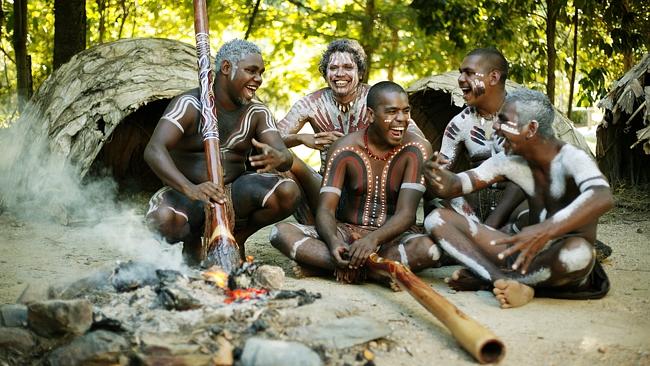Summary completion
1. You are going to read a passage about tribal tourism. Look at the title and subheading. What do you think the passage will say about tribal tourism? Tick (✓) any of these sentences that you think apply.
a Tribal tourism holidays are not the same as other types of holiday. ❑
b Tribal tourism involves meeting local people. ❑
c Tribal tourism is dangerous. ❑
d More and more people are going on tribal holidays. ❑
e Tribal tourism has its disadvantages for some people. ❑
f Tribal holidays are very expensive. ❑
2. Read the passage quickly, and check your answers to Exercise 1.

Holidays with a difference
Tribal tourism is. becoming more popular. But at what cost to the locals?
Tribal tourism is a relatively new type of tourism. It involves travellers going to remote destinations, staying with local people and learning about their culture and way of life. They stay in local accommodation, share facilities with local people, and join in with meals and celebrations. At the moment, less than one percent of holidays are tribal tourism holidays, but this is set to change.
Tribal tourism is often compared with foreign exchange visits. However, a foreign exchange involves staying with people who often share the same values. Tribal tourism takes visitors to places where the lifestyle is very different from that in their home location. Those who have been on a tribal holiday explain that experiencing this lifestyle is the main attraction. They say that it offers them the chance to live in a way they never have before.
Not everyone is convinced that tribal tourism is a good thing, and opinions are divided. The argument is about whether or not it hell the local population, or whether it exploits them. The main problem is that, because tribal tourism is relatively new, the long-term effects on local populations have not been studied in much detail. Where studies have been carried out, the effects have been found to be negative.
Travel writer Ian Coleman recalls a recent trip to Guatemala, where he saw an example of this. 'There is a village with a statue of a man called Maximon, who has a special spiritual meaning for the local tribe,' he explains. 'The statue is kept indoors, and once a year the locals bring him out and carry him around the village. However, visitors now pay money for them to bring the statue out and carry it around, while they take photographs. As a result, Maximon has lost his original meaning, and is now just another tourist attraction'
So, is it possible to experience an exotic culture without harming it in some way? 'With a bit of thought, we can maximise the positive impacts and minimise the negative,' says travel company director Hilary Waterhouse. 'Remember that you are there not only to experience a different culture, but to help it in some way. Tourists bring money to the community, which the community can invest in local projects. However, this does not mean you can act the way you might do back home. The most important thing is to show respect, learn about, and be aware of, local customs and traditions. Always remember you're a guest.'
Dawn Baker, manager of travel company Footprints, runs tours to tribal areas in Peru. 'Good companies specialising in tribal tours are very careful about who they allow on their tours,' she says. 'They won't take anyone they feel is unsuitable' Baker offers reading recommendations so that visitors can read about the country and its cultures. 'The rewards of a trip to this country are priceless, and the more you know in advance, the more priceless they are.'
Tribal tourism travellers are often surprised at how basic their facilities are when they get there. 'It's not for everyone, but for me was all part of the experience,' says Jamie White, who has recently returned from a trip to Borneo. 'We stayed in the same huts that everyone was living in, with no running water and no electricity. It was basic, but it was an ethical way to travel. Being comfortable means you use more local resources and so have more of an environmental impact'.
|
3. Read the summary in Exercise 4
1 Decide what type of information you need for each gap.
2 Find the paragraphs in the passage where you will find the information you need.
4. Now answer Questions 1-8.
Questions 1-8
Complete the summary below.
Choose NO MORE THAN TWO WORDS AND/OR A NUMBER from the passage for each answer.
Tribal tourism
People who take a tribal tourism holiday visit places that are 1 …………… When they are there, they find out about the local 2 ……………and how people live. Currently, tribal tourism accounts for less than 3 ……………of the tourism industry. Tribal tourism holidays are different from foreign exchange visits because the travellers and the people they meet have different 4 …………… Tribal tourism travellers experience a 5 …………… that they are not familiar with. For them, this is its 6 …………… However, some people argue that 7 ……………do not benefit from this kind of tourism. 8 ……………show that the effects of tribal tourism are not good.
|
Matching features
5. The passage contains the names of four people.
1 Find their names and underline them.
2 Underline the key words in this statement. 'Some people may be refused a place on a tribal tour.'
3 Now match the statement with the person who says something which has the same meaning in the passage. Complete this sentence with the person's name: The statement can be matched with
4 How do you know this is the correct answer? Underline the sentence or sentences in the passage that give you this information.
6. Now underline the key words in statements 9-13 in Exercise 7.
7. Answer the questions by reading around each name in the passage carefully and then read the list of statements to find the ones that match. Write the correct letter A-D after each statement.
Questions 9-13
Look at the following statements and the list of people below.
Match each statement with the correct person, A-D. NB You may use any letter more than once.
9 Travellers may need to change the way they behave. ……………
10 Some travellers would not enjoy living the way that the local people do. ……………
11 Tribal tourism can have benefits for local people. ……………
12 Some travellers make local people do things that they would not normally do. ……………
13 Learning about a place before you go there makes your trip much more satisfying. ……………
List of People
A Ian Coleman
B Hilary Waterhouse
C Dawn Baker
D Jamie White |
Mọi thông tin chi tiết, các bạn vui lòng liên hệ:
DU HỌC UNIGLOBE
10/3 Nguyễn Thị Minh Khai, Phường Đa Kao, Quận 1, TP.HCM
ĐT: (08) 35 173 345 – 35 173 678
Email:
info@uniglobe.edu.vn
Website:
www.uniglobe.edu.vn







bình luận